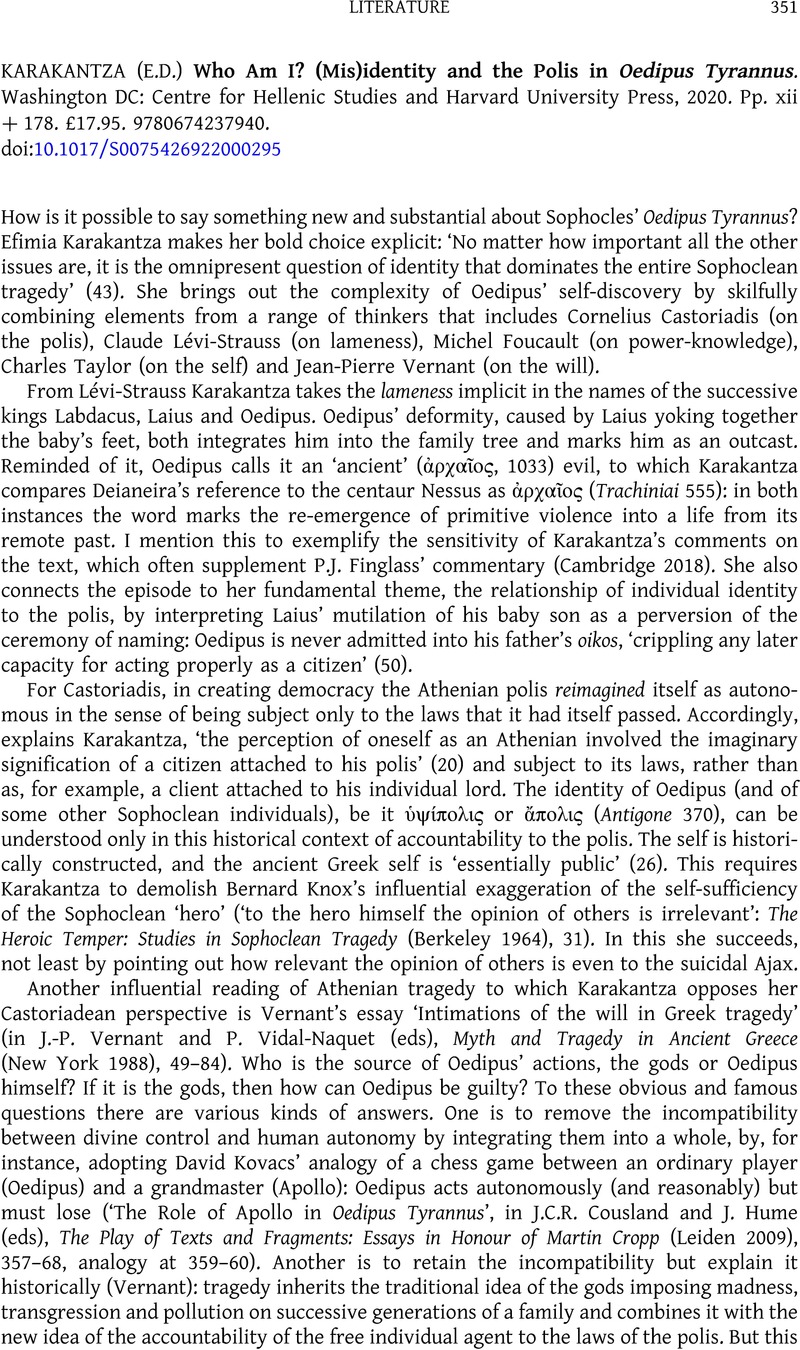No CrossRef data available.
Article contents
(E.D.) KARAKANTZA Who Am I? (Mis)identity and the Polis in Oedipus Tyrannus. Washington DC: Centre for Hellenic Studies and Harvard University Press, 2020. Pp. xii + 178. £17.95. 9780674237940.
Review products
(E.D.) KARAKANTZA Who Am I? (Mis)identity and the Polis in Oedipus Tyrannus. Washington DC: Centre for Hellenic Studies and Harvard University Press, 2020. Pp. xii + 178. £17.95. 9780674237940.
Part of:
Literature
Published online by Cambridge University Press: 11 April 2023
Abstract
An abstract is not available for this content so a preview has been provided. Please use the Get access link above for information on how to access this content.

- Type
- Reviews of Books: Literature
- Information
- Copyright
- © The Author(s), 2023. Published by Cambridge University Press on behalf of the Society for the Promotion of Hellenic Studies


